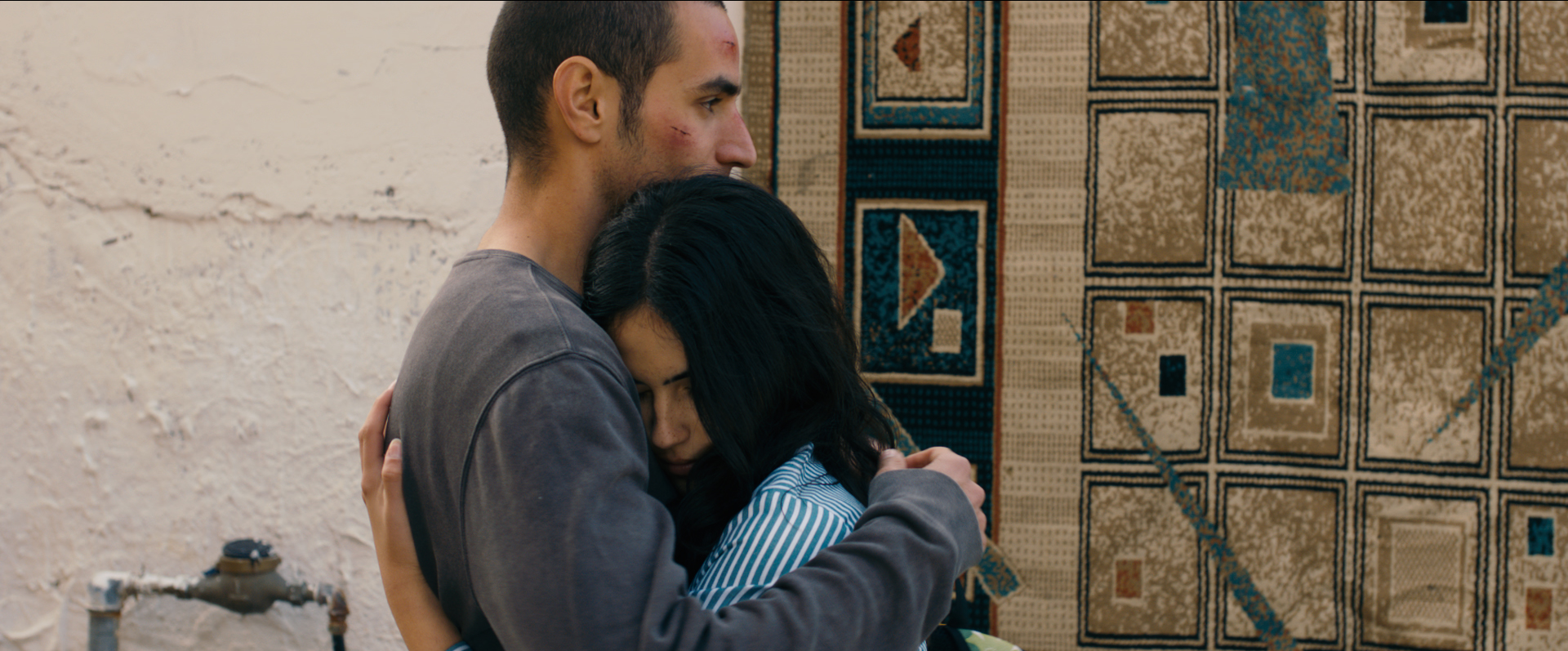
Written, produced and directed by Hany Abu-Assad, Omar is the story of a baker turned freedom fighter who, through unfortunate circumstances, finds himself working for both sides. The film won the Un Certain Regard Jury Prize at Cannes, and was nominated for the Best Foreign Language Film Academy Award, and given its marketable content (at the base of everything, under its highly political overtones, it’s a love story) I’m surprised it didn’t find domestic distribution in 2013 or early 2014 – I’m sure it would have had an audience at some of the more arty local cinemas, especially considering its claim to fame as the first fully-domestically financed picture to come out of the Palestinian film industry.
Adam Bakri plays Omar, a baker who regularly traverses the separation wall to visit his secret lover Nadia (Leem Nubany), sister of his childhood friend Tarek (Iyad Hoorani). Tarek happens to be a major player in the Palestinian resistance and indoctrinates Omar into the movement. After an act of resistance Omar is arrested and forced to play for the other side so that he may see Nadia again. From here, things spiral out of control – Omar becomes more and more entangled in a web of deceit as he attempts to ensure the continuation of his relationship with Nadia, becoming further involved with both the Palestinian freedom fighting resistance and Israeli military police operations as the relationship between the two factions further deteriorates.
The performances are pretty amazing, especially from Bakri for whom this is their first feature production. The script is itself solid, as is the overarching plot; we have the tried and true story of a man stuck in the middle of conflict with only his lover on his mind. There is clear bias in terms of the coverage of the Israel-Palestine conflict (something that I have to admit I am not to educated about), however I didn’t find the conflict objectionably handled as I did in Big Bad Wolves, which I felt had an extremely offensive conclusion. From an uneducated Western position – while it’s very clear that the film deals with the Israel-Palestine conflict – the story could be interpreted as a universally approachable “underdog fighting the system” tale, something that Big Bad Wolves, a film that ultimately demonizes individuals involved in the conflict, could not.
This is another structurally and technically accomplished film from Abu-Assad, whose 2005 film Paradise Lost garnered similar critical success. We care about the characters (virtually all of whom, no matter what side they fight for, are ultimately humanized), and the film is so well paced that we never lose interest in any single aspect of the numerous interconnected plotlines. There an interesting discussion of the construction of masculinity that pervades throughout the film that separates this from other films that focus solely on pushing an agenda in the portrayal of the Israel-Palestine conflict. Although the third act threatens to stray into “all women are bitches” territory (ultimately it doesn’t) and the final scene lacks the punch Abu-Assad clearly anticipated considering the score-free, plain, white-text-on-black-background end credits, overall it is a fitting and satisfying conclusion to the film. Even though it worked, the lack of effect this film had on me highlights a major gripe I had with Omar; there’s often huge potential for a number of sequences to absolutely blow me away, but the punches often fail to connect – and when they do they’re never knock-outs, only ever mildly-inconveniencing jabs.
Omar is an interesting film, destined to become a document marking the current state of the Israel-Palestine conflict for future generations despite at its core being a simple, traditional love-story that is fairly reminiscent of Shakespeare’s Romeo and Juliet. I wouldn’t go so far as to say Omar is an important film to see, but many will find it fascinating and one wouldn’t be making a misstep if they sought it out.
